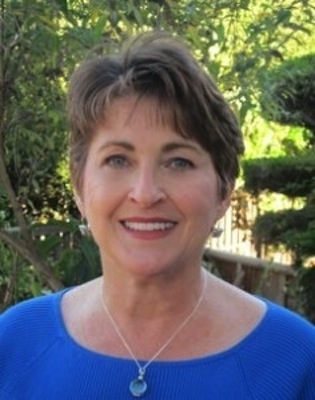By Gina Pera (intro by Rick Green)
I was thrilled to meet Gina Pera in person at an ADHD conference in Toronto. We taped a fascinating interview with her there. Gina’s passion and ongoing commitment to understanding ADHD and it’s impact on adults and their relationships is inspiring! As a researcher, a writer, speaker, and through the support groups she leads, Gina changes the lives of so many people.
I wanted to share a highlight from an interview I did with Gina Pera, author of “Is It You, Me, or Adult ADD?”

What Are Some Challenges ADHD Adults Face?
Let me tell you about my friend, Mike, who’s a PhD scientist from Canada.
When I first met him, he had been on the job for a couple of years at a high-tech biotech company, in Silicon Valley. He’s a smart guy. You don’t get to be a molecular biology PhD by not being smart. But “smart” wasn’t the issue. It’s not the issue with ADHD.
The problem was that he was now in a job that was demanding a lot of his organizational skills. He was now a project manager, and he just couldn’t get the hang of it.
He kept thinking that it was just a matter of having the right planning system or the right software, so he talked to organizational coaches, and tried software and apps that would guide you through everything. Mike even had little gizmos that would do biorhythm things.
To make things worse, Mike labored under significant sleep deficits. At night, he just couldn’t turn off his brain.
You’ve heard that ADHD people self- medicate to stimulate their brain. One of the ways they do that is by reading the news, and reading the internet. Mike believed that he had to keep on top of the news around the world, because he might be missing something, so that’s how he spent his time when he should have been focusing on getting to bed earlier.
He went through this for about a year and a half, and nothing worked for him. That’s when I asked him if he’d ever thought about trying medication. He was reluctant, but finally, he came around to it.
It took him about a year to get the medication right. What’s really important is that, during this time, he came to the group, and he talked to other people, and they shared their experiences with medication. He learned that you have to tweak it, and that you have to advocate for yourself with the doctor.
The mark of success in our group is when people stop coming in, because they don’t need it any more. And, after a while, we didn’t see Mike any more.
So, I e-mailed him, and asked him if he was okay. He said that he was, and that things were great. He’d gotten a promotion, and he and his wife were finally secure enough that they could have a child. Now, they have a baby and are doing great. Every once in a while, he checks in with me to say that life is good.
That’s kind of a common story.
In Silicon Valley, our group gets a lot of bright people from all over the world. Our group is like a little United Nations. We have people from India and Vietnam and Germany and Israel… It’s like “ADHD Without Borders” in our group, and they all have similar stories.

Is it Worth Getting an ADHD Diagnosis?
One of the interesting things to observe is how people react to the diagnosis of ADHD.
Some have been searching their whole lives for an answer, and you’ll see that they have bookcases full of self-help books. The stamina and the perseverance they’ve put into figuring out why they have these problems is amazing.
They know that they are talented and smart, but they wonder why they have so many more problems than other people.
So, they seek and seek, and when they figure out that it’s ADHD, it’s a huge relief for them.
They’re ready to jump onboard with all the strategies and medication and coaching, but some are upset because they look back at all the opportunities and other things that they missed out on, during their life.
A good therapist that understands ADHD is so important here, because they help you reframe your life experiences through the ADHD lens—not only so you can learn how your brain operates now, but also why your parents were upset with your messy room, all those years ago.
Were they evil parents, or were you a kid who really tried their patience?
I tell them that it wasn’t your parents’ fault or your fault because none of you knew about it.
“The Blame Game” sometimes happens when you get stuck with a therapist who doesn’t understand ADHD, and you don’t know you have it.
You could be talking forever about your tough childhood and how you were so mistreated, and that is sometimes very important. But if you never consider the possibility that your ADHD or a parent’s ADHD were major contributors to the conflicts and maltreatment, it might not take you to the finish line of understanding, healing, and going forward.

Advice For The Newly Diagnosed Adult or Child
If I were meeting someone who was just diagnosed or thinking about getting diagnosed, the best advice I could give them would be to educate yourself first. Whether it’s your child or yourself, read as much as you can. If you don’t like to read, there are some excellent videos out there too.
Educate yourself first, because you’re not going to be able to select a doctor, a therapist or anyone else who knows about ADHD.
You’re not going to be able to know what they need to know, until you educate yourself first.
You really have to be an advocate for yourself, which is not always easy to do when you have ADHD because often, you don’t think that things are going to be different, anyway.
You figure, you’ve already tried everything else, so why should treatment make a difference when nothing else has?
You’re often not very hopeful, so it’s a good idea to get a buddy or partner or family member to work with you and help you keep your spirits up, and help you navigate the health-care system, and make the phone calls—because, often, you won’t have the motivation to do it.
But if you can get somebody to help you, that’s probably a good idea.
I know a lot of people with ADHD say, “Oh I got diagnosed a few years ago, but I don’t know if it was legit…” Or, “I made a call, but my insurance didn’t cover it, so I just kind of let it drop.”
So, if you can team up with somebody, it will really help you through.
More Blogs By Gina Pera: How Does Adult ADHD Impact Relationships?
About Gina Pera

Gina Pera is an author (Amazon Link) and educator on Adult ADHD, especially as it can affect relationships. Her online training courses launch January 2021.
She was a veteran award-winning print journalist when, in 1999, her 37-year-old husband was diagnosed with ADHD. The couple learned of the possibility not from repeated attempts at couple therapy but by Gina digging for answers.
This discovery launched her desire to educate the public. She organized lectures and support groups in the San Francisco Bay Area, free and open to the public.
Her seminal book, Is It You, Me, or Adult A.D.D.? (2008) garnered four national book awards. Gina was invited to contribute the first-ever chapter on couple therapy to Dr. Russell Barkley’s “gold standard” clinical guide (2014).
She has presented plenary talks at professional conferences, including the International Congress on Psychopharmacology (2013) and CADDRA (2017). With Arthur L. Robin, PhD, she produced the first clinical guide to ADHD couple therapy based on the evidence (2016).
In her previous career, her work for USA Weekend Magazine won both the prestigious Best Magazine Edition Award from The Association for Women in Communications and a Unity Award in Media, recognizing accurate exposure of issues affecting minorities and disabled persons.
Visit her long-running blog: ADHD Roller Coaster – ADHDRollerCoaster.org




Leave A Comment
You must be logged in to post a comment.